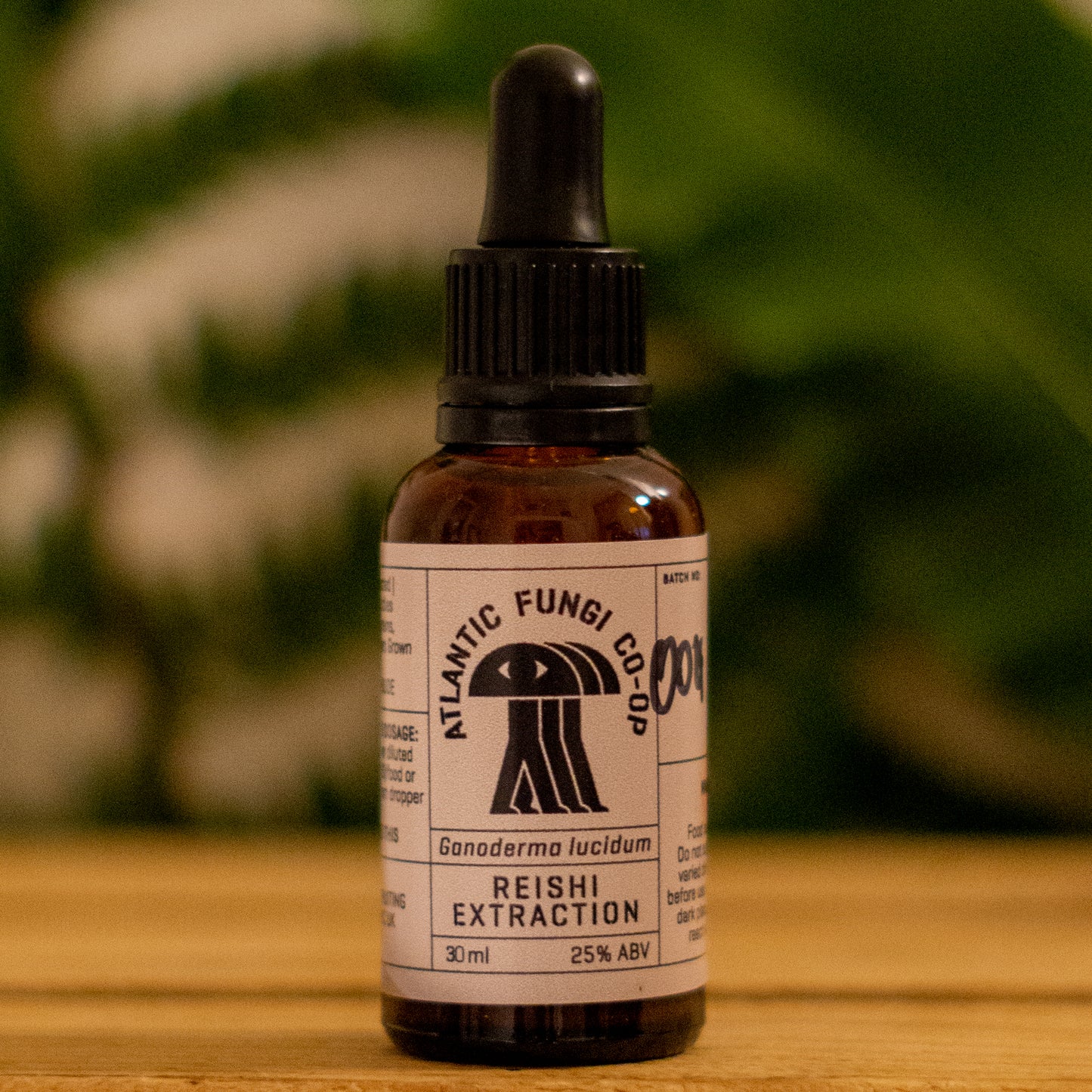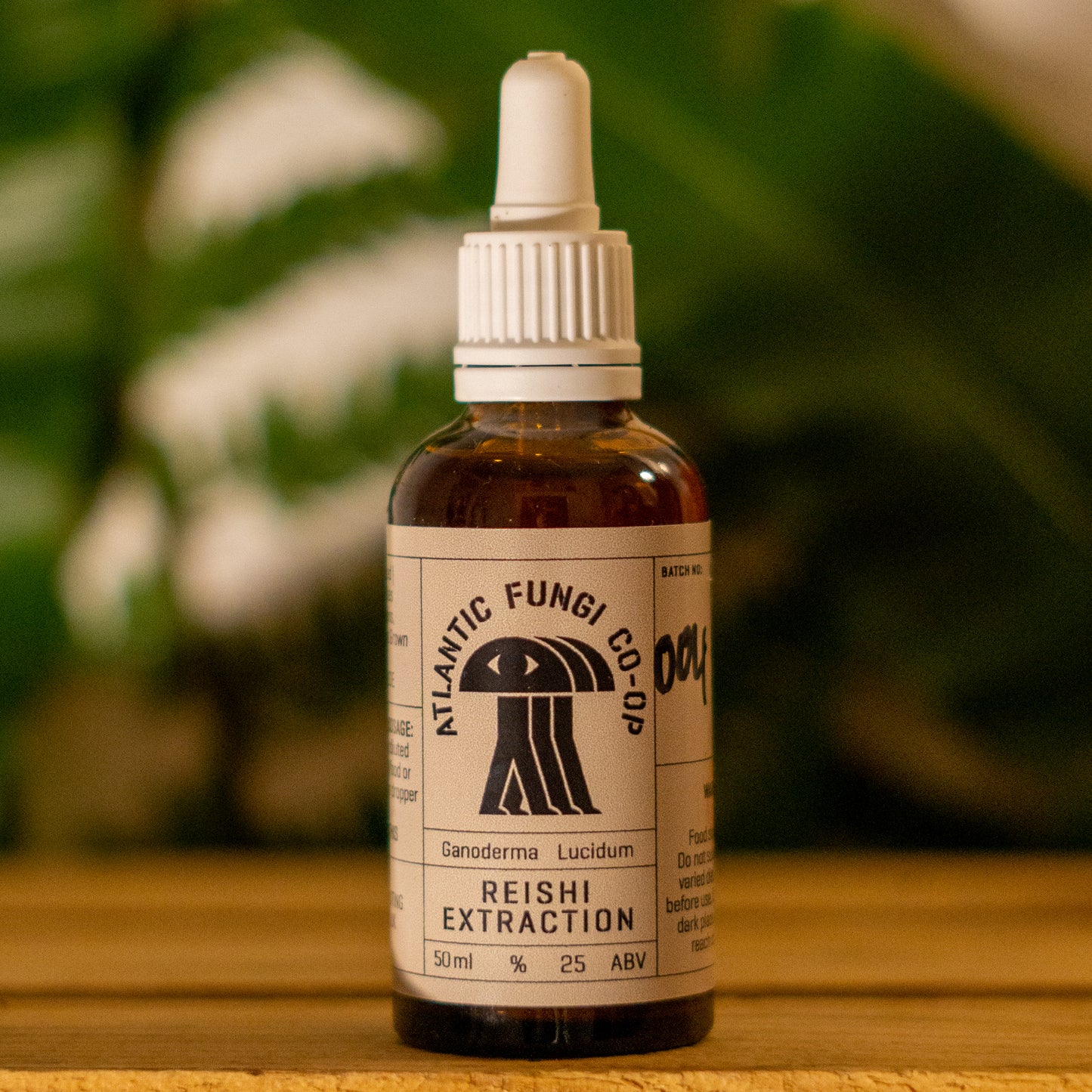Reishi Triple Extract
Reishi Triple Extract
Ganoderma lucidum
1:5 Triple extract mushroom supplement. Using 100% fruiting bodies grown, processed, and extracted on our farm in Bude, Cornwall, UK, by our qualified Biomedical scientist, Ellie.
Extracted with cold water, high pressure hot water & Organic UK ethanol. No grains, fillers, or mycelium.
Scroll for more about Reishi.
Pay It Forward?
Pay It Forward?
Help us offer our products to those with fewer financial resources
Couldn't load pickup availability
Share


Collapsible content
About Reishi
This mushroom is one of the most respected mushrooms in Traditional Chinese medicine (TCM), also known as the ‘Mushroom of Immortality’. Reishi’s reputation dates back as far as 2,400 years, as it frequently appears in ancient Chinese and Japanese artwork. However, the mushroom has likely been in use for over 4,000 years across the Eastern hemisphere, including both Korean and Indian cultures. An annual, growing on a wide variety of woods, typically saprophobic, primarily on deciduous woods, especially oak, maple, elm, willow, sweetgum, magnolia and locust (Stamets & Wu, 2002).
The myth of Magu tells of a beautiful folk woman who lived on Guyu Mountain and practiced Taoism. Magu used the water from the 13 springs on the mountain to brew Reishi wine. After 13 years, the wine matured and Magu became immortal. Magu features in both Chinese and Korean literature. She is typically portrayed as having healing powers and as having gifted the world with the healing herbs of cannabis and Reishi.
Dosage & Use
Not for under 18s
Contains Alcohol
Keep out of reach of children
Not to be used as a substitute for a natural and varied diet
Consult your GP before use if taking medication or if you have any medical condition
Recommended Dosage:
1-2ml daily, either diluted in tea, coffee, water, food or taken directly from dropper to mouth. Do not exceed this.
NB. extract may lose some efficacy/bioavailability with the addition of hot temperatures (adding to hot drinks) as the final product contains a cold water portion in its ratio. So ideally taking dropper to mouth.
Disclaimer
Atlantic Fungi Co-op and it’s members make no claims as to the medicinal uses of their products for specific medical conditions. These are sold as food supplements.
All suggestions on this page are our interpretation of the current scientific literature. Where research has shown positive action, it is often achieved in clinical settings. Please do your own due diligence in researching information and consulting the appropriate medical professional.

